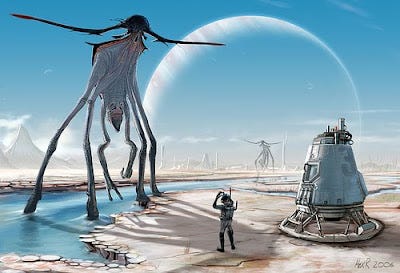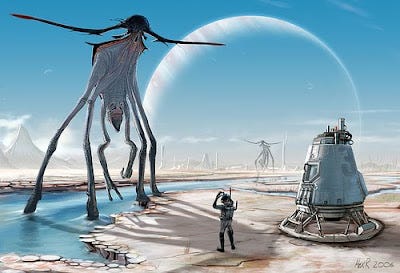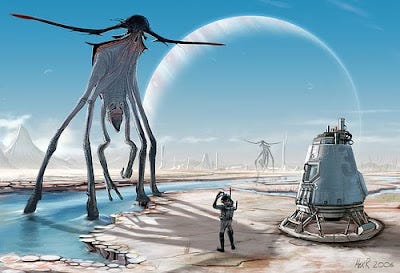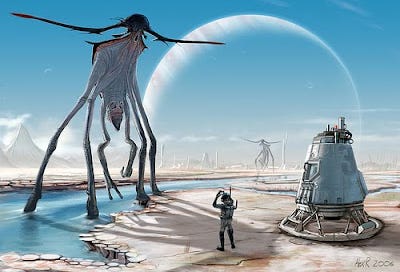*

They were everywhere, these walking holes into a treacle like black past, skeleton eyes, black holes to another dimension. He could see them everywhere; across crowded car parks, across traffic jammed streets, staring out trapped windows; wishing, wishing only for life, for fun, for positivity. Because everything in their dismal lives had been drained away. It happened again. They haunted at the edge of sight, they told a different story to everyone else. A man showed up before the meeting. I am drinking, he announced. That much was obvious. I wanted to thank you for my 32 days sobriety. I am working my butt off for my wife and child. But I cannot stop. I just wanted to thank you. Sit down, sit down, the old timers said. But he refused. After Alex it was all too much. The doctors told him if he kept drinking he would be dead within three months. He wouldn't last three months; that much was also obvious. And so, what a crying shame, all these bloody lunatics, crashing in and out, sane one minute, gone the next.
All he could see were the shadows at the edge of sight. The dreary hospital walls. The dying Thais. His friend semi-conscious on the hospital trolley that passed for a bed in the emergency ward of a public hospital in this part of the world. It was a crying shame and yet there was nothing could be done. His own face hurt from a wanton tooth and he sneezed constantly from a head cold. All the drama, those ravishing cityscapes of Bangkok, the snarling traffic, the appalling air, it had all taken it out of him. Now he was here in charming Chiang Mai, that beautiful city in the north of Thailand which he had fled to by plane the previous day; away from the sunny crowds and the glistening high end malls of Bangkok, away from the astonishing contrasts of the high rise condos and the traditional Thai neighbourhoods, the serious conflict of health and well being, the cheerful Buddha with his stumpy hands begging at the station, the doe like eyes of the commuting Thais watching inane video advertising fed straight into the carriages of the sky train.
And from Alex and despair and all the moving shapes, the hounds of God snuffling on the outskirts of the camp, circling with evil eyes, the destroyers of Shiva as much a part of life and rebirth as his own fragile thread of consciousness. Take me apart. Dissect the body, dissect the heart. If he had thought staying would have saved Alex's life he would have stayed; but every decision he made was wrong, everything failed to work as it should. Always in the wrong place at the wrong time, nothing felt natural; feverish and indistinct may have passed into history; but now there were new uncertainties, scrambled thoughts, nothing of consequence or sequence in a scrambled, well churned head. Of if only, if only; but there was nought to be. He stopped for noodle soup in a street side kitchen. He looked out the window at floating clouds. He wished to be free.
I want to thank you all for my 32 days of sobriety, the drunken Norwegian said, ignoring all the entreaties to stay. I can't stop. I am drinking now. It reminded him of the charming English con he had met in Sihanoukville; that hideous, dreary line of bars along the Cambodian coast, complaining of the black holes opening up in front of him, of the way keys would disappear if he put them down on the table in front of him, of the way the doctor had advised him to stop drinking a bottle of Vodka everyday. And yet it was him, not the crim, who had the problem when he mentioned other ways out. Drinking Passis, flirting with the barmaids, watching the sunset, telling outrageous stories, preparing for another night out. And it had been less than a year, surely not, when he had shown up and thanked people for their help, apologised for wasting their time, and began the blackest months of his life; when the treacle evil that was the fabric of things took on an even darker note; and every valley was a black waterhole of infinite horror, every move a jerking farce, every attempt at a smile nothing but a fractured grimace; and every pretence at normality nothing but a farce.
And so would Alex raise the whiskey to his lips again. No doubt. Perhaps no doubt. Does death come to foreigners in exotic climes just so quickly; without anyone to see, without anyone to care. Because they were hosts upon another host; a surface crust on an indigenous population; no links, no family, nowhere to go. Friends were for another era; another place and time. This was a life of hotel rooms and passing bar affections. He traded comment on the passing parade; on the astonishing beauty of the girls, with a "bit of a lad" next to him on the plane; drop dead gorgeous. If you want to bond with the locals just get smashed at the local, he advised Gary, thinking of his home town. And here, high in the sky, they traded gossip on the Nana bars, on the money paid monthly to the police, on Soi Cowboy; on just how astonishing the whole thing was. Yet he could not perpetrate. He could not enter. Days followed in limpid sequence. Oh pleasure, pleasure, that was for someone else, for younger men, real men; he was just there to watch, even to document, the pleasures, the lives, the trials, turmoil and turbulence of others.
And so for Alex he had only one last thought: please come back, please don't die. Not in this place. Not now. So many of his friends had refused to grow old. Some days he understood why. But from the distance of the future, from this precarious, Rip van Winkle place, they still seemed so terribly young.

THE BIGGER STORY:
http://www.heraldsun.com.au/news/no-clear-winner-in-health-debate-says-political-editor-phillip-hudson/story-e6frf7jo-1225844385699
THERE was no knock-out election-winning blow in today's leaders debate on health at the National Press Club.
Kevin Rudd, who decided the time and place, had the advantage. He talked about the health and hospital plan he has already released. His bedside manner was calm.
Tony Abbott's great disadvantage was he had no real policy to sell and spent most of the debate attacking Rudd.
He will be happy that he was able to raise serious questions about the holes and deficiencies in Rudd's plan. He will hope he was able to plant some seed of doubt in voters minds about Rudd's plan.
The one big announcement was the Prime Minister changing his policy.
Instead of all hospitals being funded per operation or medical procedure, small country hospitals will get block funding to guarantee they can stay open.
It should go some of the way to meeting concerns expressed by the Victorian government.
The Liberal decided not to rush out their health policy for the debate.
Abbott asked voters to trust him.
Rudd asked voters to trust him.
Voters are still waiting for specific answers from both men on how many extra hospital beds they will create and how they will cut waiting times for elective surgery and in emergency departments. Both talked about these points, but neither laid down a clear, costed plan.
Both leaders scored blows. Both threw political mud.
Abbott accused Rudd of being "un-prime ministerial'' and of telling "blatant lies''.
Rudd accused Abbott of ripping $1 billion out of health when he was the minister.
Rudd played to the viewers at home - and probably the TV station worms - by putting on his suburban dentist routine as a great healer who offered to work with Abbott to fix the problems. It's not an offer he would have accepted in opposition and Abbott didn't either.
Instead, Abbott confessed he would be the great wrecker of "bad'' Labor ideas.
He said he was proud he had knocked over Rudd's emissions trading scheme - "a great big new tax'' - and vowed to knock over his health and hospitals funding plan - "a great big new bureaucracy''.
But while Rudd would like the voting viewers to think he is above the political fray, Labor is rolling out attack ads against Abbott's record as health minister.
Abbott asked in reply, how can voter trust him to run a hospital system when his government has bungled the roof insulation scheme?
Just turning up to the debate on time and not falling over means Abbott gains from being given equal billing with the PM this far out from an election.
However, Rudd was better on the day. Rudd wins round one. But there should be several more debates.
In the end, it doesn't matter what the worms or political experts say.
What counts is the view of the voters in the key marginal seats.
http://www.theregister.co.uk/2010/03/23/google_oz/
Not content with taking on China, Google were today squaring up for another fight over internet censorship, this time with the Australian government.
Google, in a submission to the Australian government, said it was worried that: "the scope of content to be filtered is too wide".
The Australian proposals went "well beyond" filters being considered in countries such as Britain, Canada, Denmark, Finland and Sweden, which are focused only on blocking material related to child sex abuse.
Worse, by damaging Australia's reputation, over-broad regulation could "confer legitimacy upon filtering by other governments". This is believed to be a reference to the activities of the Chinese government, which fell out of love with Google today.
A spokesman reinforced this, adding: "The governments of many other countries may justify, by reference to Australia, their use of filtering, their lack of disclosure about what is being filtered, and their political direction of agencies administering filtering."
This has been a bad week for the Australian government’s attempts to position itself as merely delivering a policy that the voters want and is primarily for the protection of children.
The official line is that the administration wishes to block access to sites that feature material such as rape, drug use and bestiality in addition to those that feature child sex abuse. A spokeswoman for Communications Minister Stephen Conroy has also let it be known that the Australian Communications and Media Authority (ACMA) will be blocking material that would be "refused classification" (RC) in other media. She told AFP: "The government does not support RC content being available on the Internet."
This appears to be based on the principle that the same standards of censorship should be applied evenly across different media, including films, books and DVDs - although the legal model in other countries such as the UK has tended towards setting up different censorship regimes for each medium.
Such an extension would broaden the scope of the filter even further, leading potentially to blocks on material that is seen to advocate criminal acts, or to be useful to others intending to commit such acts.
Despite criticisms of its blocking policy and claims by critics that fewer than half of the sites on the current list relate to child abuse, the ACMA has consistently refused to publish the list. This contrasts with active debate going on in other jurisdictions as to the best way to audit block lists and to provide the public with confidence that the government is not quietly expanding the scope of what is blocked.
In further bad news for the government, Yahoo! Australia added its voice in support of Google’s contention that the filter was too broad and warned that it could block content "with a strong social, political and/or educational value" on topics such as euthanasia, graffiti, terrorism, abortion and homosexuality.

Painting by Alex Ries.



